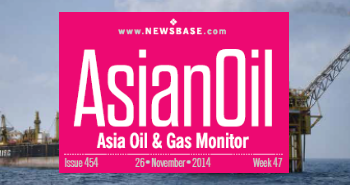AsianOil: India continues to rail against oil supply cuts

The Indian government maintained its pressure on OPEC+ and Saudi Arabia this past week, pushing for an easing in production cuts in order to lower international oil prices.
Indian Minister of Petroleum and Natural Gas Dharmendra Pradhan said on March 26 that his country’s energy purchases were driven by commercial interests and not bilateral relations.
“India will keep its interest in mind in deciding on its strategic and economic decisions,” he told an industry event. “We are a consuming nation and we will have to import energy for a long time. So, whosoever gives up cheap, and easy, [oil] we will buy from them.”
He said it did not matter whether the oil came from Iraq, the US, United Arab Emirates (UAE) or Saudi Arabia, India’s “common interest” was paramount.
India imported 2.11mn tonnes (552,000 barrels per day (bpd)) of US crude in February, dethroning Saudi Arabia as the Asian giant’s second largest supplier in the process – reportedly marking the first time the Middle Eastern supplier has dropped below the top two spots since 2006.
Iraq supplied 867,500 bpd in February, while Saudi shipments fell by 42% month on month to 445,200 bpd, leaving the kingdom in fourth place.
Pradhan said: “It’s not the issue of we are going to be closer to whom. The issue is who is going to serve our interests. Today Iraq is the number one supplier of our requirement. We are taking [a] substantial amount from UAE also. UAE is a very reliable partner for India in crude oil supply. We have some offtake conditions from Kuwait also, from certain African countries also. We are open, we are a free market.”
Pradhan has been an outspoken critic of OPEC+ this year, complaining that the organisation has failed to deliver much-needed oil price stability at a time when the global economy is trying to find its feet. He has repeatedly warned that India will diversify its imports as well as speed up its adoption of alternative energy supplies if production cuts are not eased.
Saudi Energy Minister Prince Abdulaziz bin Salman has suggested New Delhi could open the country’s strategic petroleum reserve (SPR), which was filled with cheap oil in the aftermath of last year’s oil price collapse, if it is concerned by the current pricing environment.
Pradhan, however, has not been not impressed by the advice, describing it as “undiplomatic”. He added: “I politely disagree with that kind of approach. Certainly India has its own strategy, when and how to use our own storage, and we are conscious about our interests.”
Oil prices had a turbulent month in March. The Brent benchmark reached a 14-month high of more than $71 per barrel on March 8, then tumbled to $60 on March 24 owing to extended lockdowns in Europe, before bouncing back to $64 on the blocking the Suez Canal by the Ever Given tanker.
While Indian officials have told local media outlets that the blocked route does not pose a threat to country’s oil supply, they have acknowledged that the longer the problem lasts the more upward pressure it will place on tanker rates and thus crude prices.
Barclays has predicted that Brent prices will average $71 per barrel in 2022, while JPMorgan has predicted that they could average $74.


Follow us online